Publications
Articles, publications, books, tools and multimedia features from the U.S. Institute of Peace provide the latest news, analysis, research findings, practitioner guides and reports, all related to the conflict zones and issues that are at the center of the Institute’s work to prevent and reduce violent conflict.
Question And Answer
Blinken’s China Trip Shows Both Sides Want to Stabilize Ties
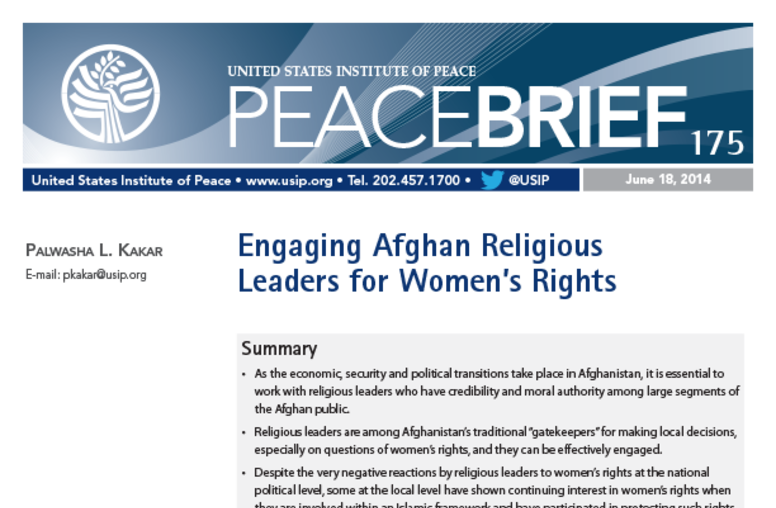
Engaging Afghan Religious Leaders for Women’s Rights
Women’s rights programs in Afghanistan need to work with religious leaders who have moral authority among large segments of the Afghan public. Engaging those traditional leaders who have a track record of supporting women’s rights begins with respecting their opinions and showing the patience to build trust through dialogue. It also requires supporting processes of change that are identified locally and ensuring that local partners take the lead role in the delivery of support as much as poss...
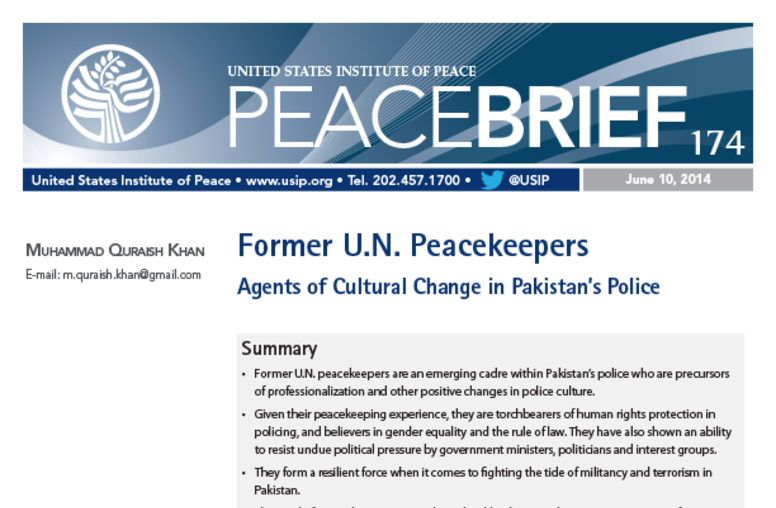
Former U.N. Peacekeepers
Former U.N. peacekeepers are an emerging cadre within Pakistan’s police who are precursors of professionalization and other positive changes in police culture. They are torchbearers of human rights protection in policing and form a resilient force when it comes to fighting the tide of militancy and terrorism in Pakistan.
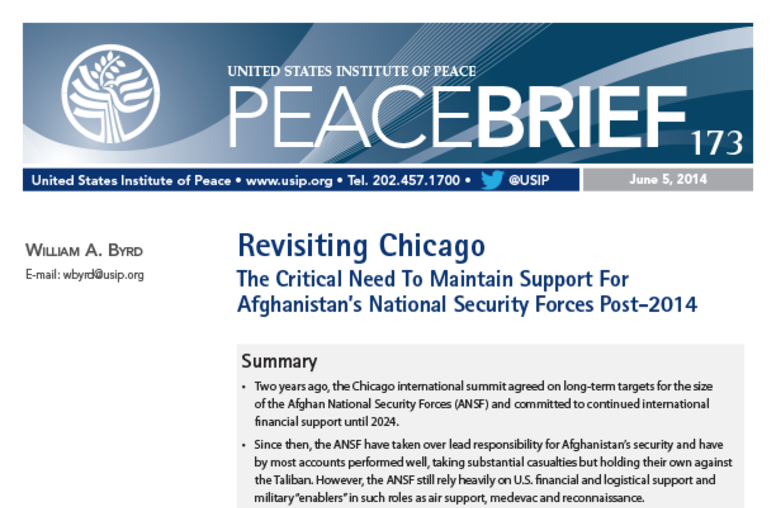
Revisiting Chicago
The May 27 White House announcement on troop withdrawals from Afghanistan raises serious questions about the staying power of international security funding to support the size of the future Afghan National Security Forces (ANSF), as agreed two years ago in Chicago. Concerns also exist about Afghanistan fulfilling its own commitment to fund its security forces. With the ANSF largely a U.S. creation, it would be irresponsible now to turn around and undermine it.
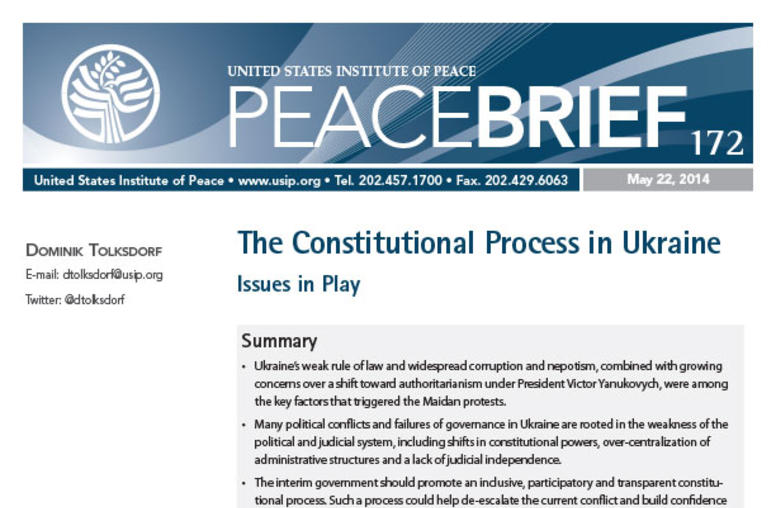
The Constitutional Process in Ukraine
The Ukrainian government should promote an inclusive, participatory and transparent constitutional process. Such a process could help de-escalate the current conflict and build confidence in the central government and its willingness to integrate all constituencies into Ukraine’s political system.
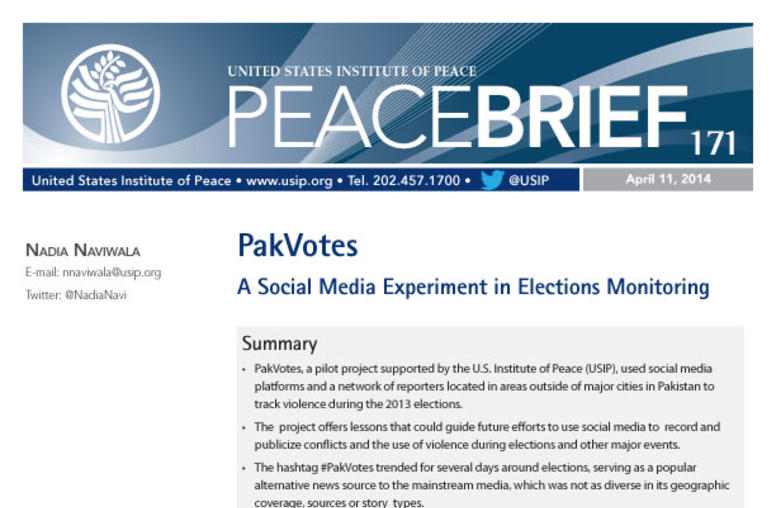
PakVotes: A Social Media Experiment in Elections Monitoring
PakVotes, an experimental project run by a Pakistani NGO and supported by USIP, brought social media platforms together with a network of reporters to track violence during Pakistan’s 2013 elections. The experience offers lessons for the future use of social media to publicize conflicts and violence during elections and other major events.
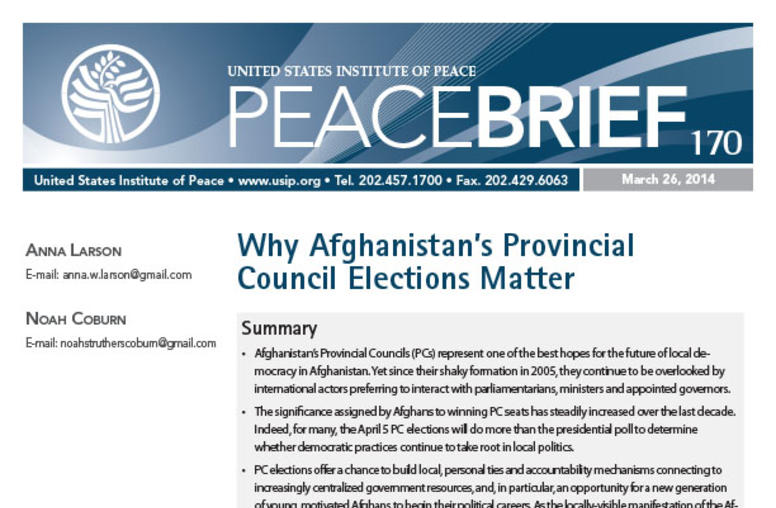
Why Afghanistan’s Provincial Council Elections Matter
With elections scheduled for April 5, Afghanistan’s Provincial Councils offer one of the best hopes for the future of local democracy in the country. The significance of Provincial Councils, including creating an opportunity for a new generation of young Afghans to begin political careers, has often been overlooked but has steadily increased.
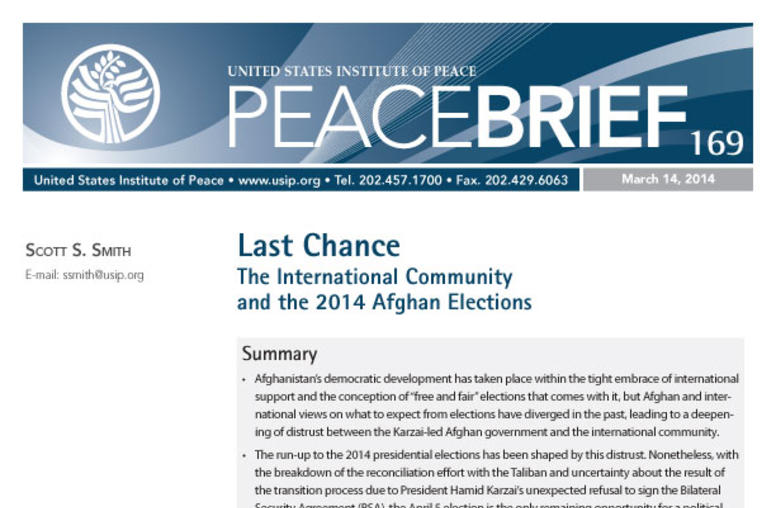
Last Chance: The International Community and the 2014 Afghan Elections
Afghanistan's April 5 election could create space for political elites to address root causes of the country's continuing crisis, despite the past divergence between Afghan and international views on what elections can accomplish. With more realistic expectations, informed in part by a better understanding of the 2009 elections, the Afghans may be more determined to take this possibly final opportunity to rescue themselves from a political implosion.

Reintegrating Armed Groups in Afghanistan
Four programs for the disarmament, demobilization and reintegration (DDR) of armed groups in Afghanistan have been undertaken since 2001, but they have reflected a piecemeal approach and produced limited results. A comprehensive DDR effort in the future is unlikely to work unless a settlement includes all armed groups, and the reintegration of commanders and fighters might better precede disarmament. In this Peace Brief, author Deedee Derksen examines those past programs and provides useful l...
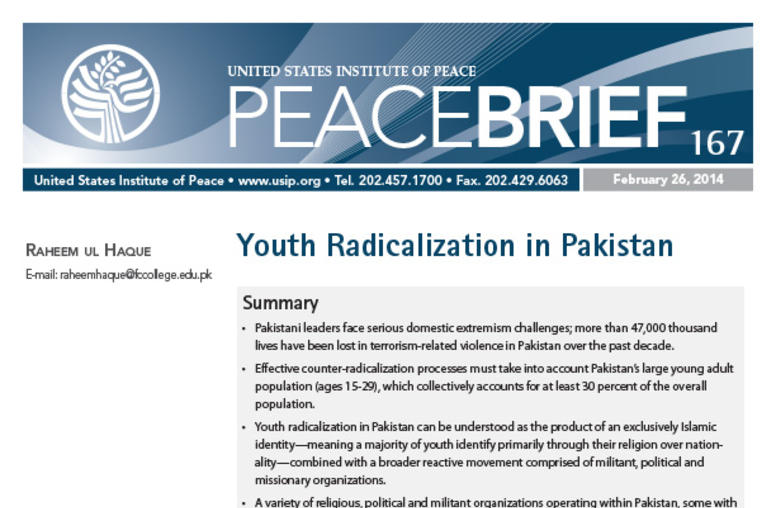
Youth Radicalization in Pakistan
Amid the serious threat of extremism within Pakistan’s large young adult population, author Raheem ul Haque explores the process of youth radicalization and recommends how policymakers can best confront the growing challenge.

Compounding Uncertainty in Afghanistan
USIP’s Bill Byrd, Casey Johnson and Sanaullah Tasal explore the economic implications of the delay in signing the Bilateral Security Agreement between Afghanistan and the U.S.